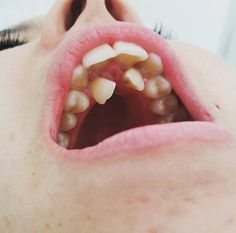Introduction
Teeth and bones might seem similar at first glance—they’re both hard, white, and essential body parts. But are teeth bones? The answer might surprise you. While teeth and bones share similarities, their key differences set them apart. In this article, we’ll break down the science behind teeth and bones, explain their structure, and clear up common misconceptions.
What Are Teeth Made Of?
Teeth are not made of bone; they are composed of multiple layers of different materials. The outermost layer, called enamel, is the hardest substance in the human body. Beneath the enamel lies dentin, a tough tissue that makes up most of the tooth’s structure. Inside the tooth is the pulp, which contains nerves and blood vessels that keep the tooth alive.
Unlike bones, teeth do not have bone marrow, which is crucial for producing blood cells. Instead, they rely on the pulp for nourishment and sensation.
Why Do People Think Teeth Are Bones?
People assume teeth are bones mainly because of their appearance and hardness. Both are white and contain minerals like calcium and phosphorus, which strengthen them. However, there are key differences that make teeth unique.
Another reason for this confusion is that teeth need calcium to stay strong. But while bone can heal themselves when broken, teeth cannot regenerate once damaged.
Are Teeth Bones? Key Differences You Should Know
While teeth and bones share some common features, they fundamentally differ in structure and function.
1. Teeth Are Covered in Enamel, Not Periosteum
Bones are covered by a thin membrane called periosteum, which helps them heal and grow. Teeth, on the other hand, teeth are covered in enamel, a non-living substance that cannot repair itself once damaged.
2. Teeth Do Not Contain Bone Marrow
Bone marrow is the soft, spongy tissue inside bones that produces blood cells. Teeth do not have this structure; instead, they have a pulp chamber filled with nerves and blood vessels.
3. Teeth Cannot Heal Themselves
Bones have the amazing ability to regenerate when they break. If you fracture a bone, your body can repair it over time. Teeth, however, do not have this self-healing ability. Once a tooth is damaged by decay or trauma, it needs dental treatment to restore its function.
4. Teeth and Bones Have Different Compositions
Bones are primarily made of collagen and calcium phosphate, which gives them flexibility and strength. Teeth, however, are mostly composed of hydroxyapatite, a dense mineral that makes them much harder than bone.
Do Teeth Need Calcium Like Bones?
Yes! Even though teeth are not bones, they still require calcium to stay strong. A diet rich in calcium, phosphorus, and vitamin D helps keep enamel strong and prevents cavities. Dairy products, leafy greens, nuts, and fish are excellent sources of these essential nutrients.
Can Teeth Be Repaired Like Bones?
Unlike bone, teeth cannot regenerate naturally. However, modern dentistry offers several solutions for damaged teeth, including:
- Fillings for cavities
- Crowns to cover weak or broken teeth
- Root canals to treat infected pulp
- Dental implants for missing teeth
These treatments help restore function and appearance but do not allow teeth to grow back on their own.
Why Is Dental Care So Important?
Because teeth cannot heal themselves, proper oral hygiene is crucial. Brushing twice daily, flossing regularly, and visiting the dentist for checkups can help prevent decay and gum disease.
Ignoring dental health can lead to serious problems, including:
- Tooth decay (cavities)
- Gum disease (gingivitis and periodontitis)
- Tooth loss
- Infections that can spread to other parts of the body
How to Keep Your Teeth Strong and Healthy
Taking care of your teeth is essential to maintaining good oral health. Here are some tips to keep them strong:
- Brush and Floss Daily – Use fluoride toothpaste and a soft-bristled brush to clean your teeth at least twice daily. Flossing removes plaque between teeth.
- Eat a Balanced Diet – Foods rich in calcium, phosphorus, and vitamin D help strengthen teeth. Avoid sugary snacks and acidic drinks that erode enamel.
- Visit Your Dentist Regularly – Professional cleanings and checkups can prevent dental issues before they become serious.
- Avoid Bad Habits – Smoking, excessive alcohol, and chewing ice can damage your teeth and weaken enamel.
- Drink Plenty of Water – Staying hydrated helps wash away bacteria and keeps your mouth clean.
Are Baby Teeth and Adult Teeth the Same?
Baby teeth and adult teeth are different in structure and function. Baby teeth, also known as primary teeth, are smaller and have thinner enamel. They serve as placeholders for permanent teeth and eventually fall out.
Adult teeth, or permanent teeth, are stronger and designed to last a lifetime. They have thicker enamel and deeper roots to provide stability.
Do Other Animals Have Teeth Like Humans?
Teeth vary widely across the animal kingdom. Some animals, like sharks, constantly regrow teeth, while others, like rodents, have teeth that never stop growing. However, humans only get two sets of teeth in their lifetime—baby and permanent.

Final Thoughts: Are Teeth Bones?
So, are teeth bones? No, teeth are not bones. While they share similarities, teeth, and bones are structurally and functionally different. Unlike bones, teeth do not contain marrow, cannot heal themselves, and are covered in enamel instead of periosteum.
Because teeth cannot repair themselves, taking good care of them is essential. A healthy diet, proper oral hygiene, and regular dental visits are key to keeping your teeth strong and preventing problems.
Frequently Asked Questions (FAQs)
1. Are teeth bones or organs?
Teeth are not bones or organs. They are unique structures made of enamel, dentin, and pulp. They do not have marrow, and they cannot regenerate like bones.
2. What happens if a tooth breaks?
Unlike bones, teeth cannot heal themselves. If a tooth breaks, you must visit a dentist for treatment, such as a filling, crown, or root canal.
3. Why do teeth turn yellow if they are not bones?
Teeth can turn yellow due to enamel wear, staining from food and drinks, smoking, or poor oral hygiene. Unlike bones, teeth do not regenerate, so discoloration is permanent unless treated.
4. Do teeth get stronger with age?
No, teeth weaken with age. Over time, enamel wears down, and teeth become more prone to decay and damage. Proper care can slow this process.
5. Can you rebuild enamel-like bones?
No, once enamel is lost, it does not grow back. However, fluoride treatments and good oral hygiene can help strengthen the remaining enamel and prevent further damage.
Explore more: hadokin










